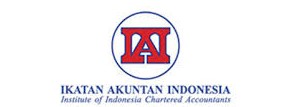Pengaruh Financial Distress dan Corporate Social Resposibility terhadap Konservatisme Akuntansi
Abstract
The financial report is a description of the company's performance. This study aims to determine the effect of financial distress and corporate social responsibility on accounting conservatism. Manufacturing companies listed on the Indonesia Stock Exchange are the population in this study with the 2017-2019 research period. The number of samples analyzed were 34 companies. Samples were taken by purposive sampling method. The analysis technique used is multiple linear analysis technique. The results show that financial distress has a positive effect on accounting conservatism, corporate social responsibility has no effect on accounting conservatism. Suggestions for further research are expected to increase the number of research samples and years of observation, and also to use other variables that can be used to measure the level of accounting conservatism.
References
Anagnostopoulou, Seraina C., Andrianos E. Tsekrekos, and Georgios Voulgaris. 2020. “Accounting Conservatism and Corporate Social Responsibility.” British Accounting Review. doi: 10.1016/j.bar.2020.100942.
Basu, Sudipta. 1997. “The Conservatism Principle and the Asymmetric Timeliness of Earnings1.” Journal of Accounting and Economics 24(1):3–37.
Cheng, Chia-Ling, and Fan-Hua Kung. 2016. “The Effects of Mandatory Corporate Social Responsibility Policy on Accounting Conservatism.” Review of Accounting and Finance 15(1):2–20. doi: 10.1108/RAF-12-2014-0135.
Ghozali, Imam. 2013. “Aplikasi Analisis Multivariate Dengan Program IBM SPSS 21 Update PLS Regresi. Semarang: Badan Penerbit Universitas Diponegoro.” Information Technology 2(2).
Ikma, Dhafi Rahmatul, and Muchamad Syafruddin. 2019. “Pengaruh Kebijakan Corporate Social Responsibilites Terhadap Konservatisme Akuntansi (Studi Empiris Pada Perusahaan Yang Terdaftar Di Bursa Efek Indonesia Tahun 2016).” Diponegoro Journal of Accounting 8(2).
Noviantari, Ni Wayan, and Ni Made Dwi Ratnadi. 2015. “Pengaruh Financial Distress, Ukuran Perusahaan, Dan Leverage Pada Konservatisme Akuntansi.” E-Jurnal Akuntansi 11(3):646–60.
Nugroho, Deffa Agung, and Mutmainah SITI. 2012. “Pengaruh Struktur Kepemilikan Manajerial, Debt Covenant, Tingkat Kesulitan Keuangan Perusahaan, Dan Risiko Litigasi Terhadap Konservatisme Akuntansi (Studi Empiris Pada Perusahaan Manufaktur Yang Terdaftar Di BEI Tahun 2008-2010).”
Risdiyani, Fani, and Kusmuriyanto Kusmuriyanto. 2015. “Analisis Faktor-Faktor Yang Mempengaruhi Penerapan Konservatisme Akuntansi.” Accounting Analysis Journal 4(3).
Sari, Dahlia. 2014. “Hubungan Antara Konservatisme Akuntansi Dengan Konflik Bondholders-Shareholders Seputar Kebijakan Dividen Dan Peringkat Obligasi.” Jurnal Akuntansi Dan Keuangan Indonesia 1(2):63–88.
Setyaningsih, Hesty. 2016. “Pengaruh Tingkat Kesulitan Keuangan Perusahaan Terhadap Konservatisme Akuntansi.” Journal of Accounting and Investment 9(1):91–107.
Sulastri, Susi, and Yane Devi Anna. 2018. “Pengaruh Financial Distress Dan Leverage Terhadap Konservatisme Akuntansi.”
Suryandari, Erni, and Rangga Eka Priyanto. 2012. “Pengaruh Risiko Litigasi Dan Tingkat Kesulitan Keuangan Perusahaan Terhadap Hubungan Antara Konflik Kepentingan Dan Konservatisme Akuntansi.” Jurnal Akuntansi Dan Investasi 12(2).
Suwardjono, Teori Akuntansi. 2005. “Perekayasaan Pelaporan Keuangan.” Yogyakarta: BPFE.
Tista, Kadek Weda Noveadjani, and I. Ketut Suryanawa. 2017. “Pengaruh Ukuran Perusahaan Dan Potensi Kesulitan Keuangan Pada Konservatisme Akuntansi Dengan Leverage Sebagai Pemoderasi.” E-Jurnal Akuntansi; Vol 18 No 3 (2017).
Wahyu, Iddha, Dwi Putra, Vita Fitria Sari, Alumni Jurusan, Akuntansi Fakultas, Ekonomi Universitas, Negeri Padang, and Jurusan Akuntansi Fakultas. 2020. Pengaruh Financial Distress, Leverage, Dan Profitabilitas Terhadap Konservatisme Akuntansi. Vol. 2. Online.
Watts, Ross L. 2003b. “Conservatism in Accounting Part I: Explanations and Implications.” Accounting Horizons 17(3):207–21.
Yuliarti, Dita, and Heri Yanto. 2017. “The Effect of Leverage, Firm Size, Managerial Ownership, Size of Board Commissioners and Profitability to Accounting Conservatism.” Accounting Analysis Journal 6(2):173–84.







.png)
.png)
